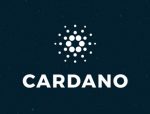As consumers, it is quite easy now to join the Blockchain revolution and purchase some cryptocurrencies. But if you’re a crypto business, banking is a nightmare. Banks often refuse to open an account for crypto companies, not because it’s illegal, but because compliance is a hassle. And this happens to almost every crypto business. Even raising millions and having supporters from the traditional world is not enough. This has very serious implications for the growth of the Blockchain/crypto ecosystem on a national and global level.
DAG Global is providing a solution. They are building the UK’s first ever crypto-friendly merchant bank focused on SMEs (small and medium-sized enterprises) operating in the Blockchain/crypto sphere, expected to launch in Q4 2019.
 I sat down with Stephanie Ramezan, Head of Sales at DAG Global.
I sat down with Stephanie Ramezan, Head of Sales at DAG Global.
My name is Stephanie Ramezan, Head of Sales for DAG Global – a London-based corporation aiming to be the first fully-regulated UK bank, clearing directly with the Bank of England to offer fiat and crypto bank accounts to institutions in the space. Our USP (unique selling proposition) is that we’re going to be banking crypto companies that right now have to go offshore to different jurisdictions to get bank accounts.
Coinisseur: What is the gap in the market you’re targeting?
Stephanie: There is a huge demand in the market from corporates who are not able to get bank accounts: many established and highly respectable companies have no other choice but to bank in e.g. Liechtenstein, Malta, or Gibraltar, because right now there are no UK banks which can service them. Similarly to many other jurisdictions, numerous business bank accounts have been shut down or frozen if they are transacting with any entity in the crypto space.
So from day one, we are filling this gap in the market, servicing clients who need business bank accounts.
In the US a good comparison would be Silvergate: the Californian bank has increased their fiat deposits related purely to crypto companies from $6 million to $1.5 billion in the last few years by just offering bank accounts to the sector. They estimate this market to be worth in excess of 40 billion dollars. So there is a huge opportunity there and a gap in the market to be filled.
There is currently no bank in the UK that actively seeks to bank businesses operating in or interacting with the crypto space, but London is the financial capital of the world and was ranked third globally last year in terms of funds raised via ICOs. DAG Global will solve this problem by providing the banking facilities that the crypto ecosystem needs.
C: You’ll be a merchant bank. What does that mean?
We aim to be a digital merchant bank. What that means is that we want to go back to a merchant banking model, meaning aligning ourselves with the business interests of our clients.
We aim to bank companies in the broader SME space, also if they currently do not have any activities in crypto or blockchain, and that can include a whole array of different kind of corporates. They have had a massive problem in the last few years and decades of not being able to grow in line with the economy. Even newer fintechs are finding it hard to get bank accounts with reasonable fees.
To achieve our goals we will be using digital instruments. To align ourselves with our clients we are creating digital bonds and digital equity, which will be a lot more accessible to this space. For example, traditional bonds can cost hundreds of thousands, if not millions, to structure and launch. With digital bonds, the cost will be a fraction of that. It will be a lot faster and much more cost effective, and therefore more accessible to our client base in the SME space. In addition to digital bonds, in time we will also be able to look at tokenization of equity via an STO, or a digital equity instruments, if our clients would prefer to raise funds for via the sale of equity. Once our balance sheet is of sufficient size, our aim is to underwrite these digital debt and equity instruments and work with regulated exchanges then to list them.
C: Will you have any “real” locations?
We are starting in London, and we will be able to build internationally from there. Despite being a digital bank, we will have a real presence so that our customers will be able to interact with real people.
C: Why do you want to be regulated in the UK?
In the very early days we were tempted to buy a banking license in another jurisdiction and passport into the UK, however, we thought very carefully about what we are truly trying to achieve – we want to be robust and sustainable, have a first mover advantage, and build with the approval of the regulators and with an ongoing process of consultation with them – by being very transparent with them in what we are doing from day one. As a result, we hope to have continued constructive discussions with the regulators. Our team is comprised mostly of traditional bankers, and several of us have built banks in the past as well as digital businesses.
C: How do you think your business will affect how banks do theirs?
We feel that the larger banks will adopt a part of what we are doing in time to come. But it would be very difficult for them to fully transform and catch up overnight for various reasons, not limited to: the legacy backends, the technology, the politics involved, the compliance, etc. It is not in the short-term plan of the mainstream players to enter into our space.
C: Do you think that Brexit will impact your journey in any way?
One of the positives of Brexit is that Britain needs to innovate, now more than ever. London truly is a hub for innovation technology and finance, but obviously, the financial services companies have suffered over the last couple of years – several have moved a number of their teams out of the UK but now with the rise of “Blockchain Britain” DAG can help pave the road to a very exciting time for growth in the UK.
We have worked with the APPG Blockchain (the all-party parliamentary group for blockchain), which is connected to the UK Parliament. They are an innovation hub and they want to see us succeed because politically it will be positive for the country and will have a real positive social impact.
C: Your team are mostly ex-bankers – you’re actually blockchain converts. Why did you move into this space, why do you find the digital asset space so interesting?
There was a bit of fate in the inception of DAG. The first idea for DAG came from the experience of our CEO and founder Sean Kiernan. He was the London COO of the first regulated bank in the world to start offering crypto accounts and servicing individuals that had digital assets – but they were purely a private bank. Once the prior bank started offering crypto services, he received several calls daily from corporates and institutions from all over Europe saying “we heard that you’re into crypto and digital assets now, we want to have an account”, and he would have to say no due to the fact that it was a private bank and by definition, could not service corporates. It was completely clear that the demand was there, and we knew that the gap in the market was there. DAG was borne out of a desire to set up a bank ourselves, in full confidence that if we could achieve what we set out to do, we would have (we already do) have a queue of clients.
In terms of the broader digital asset space, I have always been interested in innovation and technology. I have raised money for a lot of startups over the years, and my last role was with a small corporate finance boutique in London. I have previously worked with FinTech companies to raise money from Seed to pre-IPO rounds, and I personally found it fascinating.
DAG has been an incredible journey, and I feel that I’ve learned more in two years than I have in the last twenty. I’ve taken a blockchain strategy course through Oxford University, so I’ve looked at various different elements of blockchain applications and not limited myself to financial services. I recently wrote a paper on academic credentials within Blockchain. Additionally, I am very interested in the luxury space and fine arts in the context of DLT. The possibilities are endless in terms of applications. I challenge anyone to come up to me and give me a product or a service where there is not at least one element that could be integrated or use blockchain technology.
C: What’s the status right now?
We had put in an application to the FCA sandbox [UK’s regulatory sandbox for businesses to test innovative propositions with real consumers], and they advised us to go straight to the PRA for the full banking licence [Prudential Regulation Authority of the UK, tasked with supervision of banks and other financial firms]. Right now we are progressing in our application for a UK banking license, for which we hope to receive initial mobilisation by Q4 2019. We’re also completing our seed round via crowdfunding, and following that we will launch our Series A. For anyone who wants to join us and invest the Seed round, they can do so via www.crowdcube.com/dag
C: Will you be able to service international firms or only those based in London?
We will be able to service international clients subject to KYC and AML, yes.
C: Is it okay that interested parties contact you already?
Yes, all interested parties are free to contact us! We are building a client base already, and we want our client base to be involved in the journey, which is why we’re actually doing the seed round on Crowdcube (a crowdfunding site).
If you are interested in becoming a client, please contact us at info@dag.global.
C: Will individual investors be able to also contribute?
Anyone can go on to crowdcube as a retail player. We will only service corporates and institutions, but as an investor, anyone can invest via crowdcube. The minimum investment is £120 (around $150) and we are raising 2 million pounds in return for equity. The pre-money valuation is 12.5 million. ~80% of the crowdfunding round has already been filled as of now and will run for another 9 days.
As soon as we close the seed round, we will start with Series A. We are already in talks with institutions who would like to invest and who would make good strategic partners for us.
C: What are your long-term plans?
We are very excited to build the world’s first digital asset merchant bank. There is much to achieve in the short- to medium-term, in building a reputation of service, and also in supporting our clients with classic commercial banking facilities, digital asset services, and the revolutionary use of a bank balance sheet to underwrite digital debt and equity instruments.
We aim to bring banking back to its roots and work to deliver merchant banking services and support our client requirements with liquidity and growth capital. Once we have established ourselves successfully in the UK, our target is also to grow DAG internationally. In order to maintain the independence of our mission, our plan is to IPO three+ years from now in London rather than to sell to a larger company.
| At eToro you can trade 49 currency pairs, including several cryptocurrencies. Join eToro |













